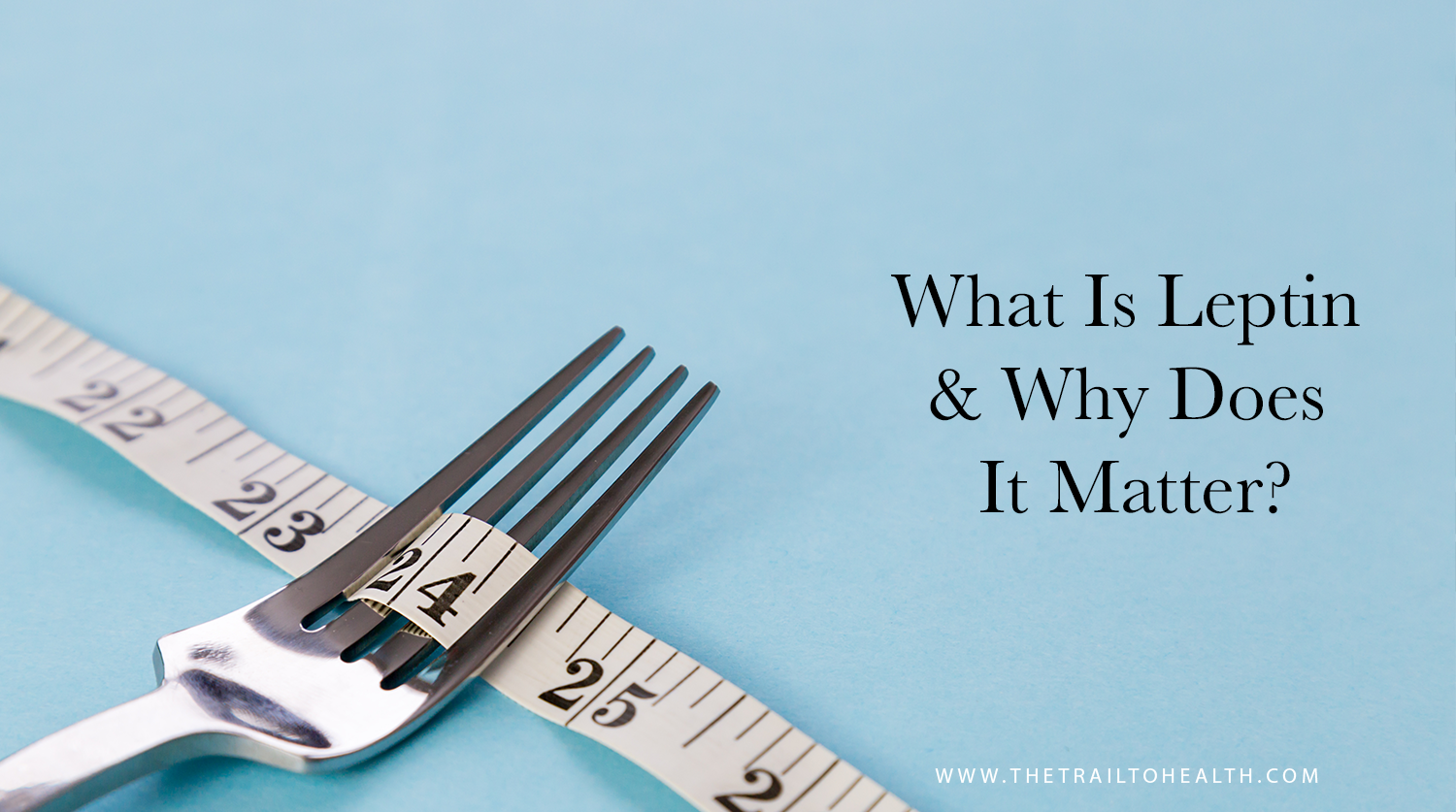What Is Leptin And Why Does It Matter?
Today I want to talk about leptin. What’s leptin, you ask? The short answer is that leptin is a hormone that’s responsible for weight regulation, metabolism, fat, energy and reproductive functions.
While leptin is highly influential on our weight, its also related to your thyroid gland. As you can see, leptin is important. You’ve read the short answer, now let’s explore the long answer of what leptin is and why it matters to your health.
What is Leptin?
Leptin is a hormone stored in the body’s fat cells. Leptin plays an important role by alerting the body of when to store or burn fat. Fat cells create leptin and as fat cells increase, leptin circulation in the bloodstream increases also. These elevated levels of leptin communicate with the body not to store fat, because ultimately we feel full. When leptin levels remain high for longer than intended, our body’s experience leptin resistance.
As a result, our body’s don’t get informed that it should be burning fat and instead stores it, generating more leptin production. This process leads to excess fat, weight gain, and even obesity.
With leptin resistance, we constantly feel hungry because our brain’s aren’t being notified that we’re actually full. Naturally, we keep eating and fat cells accumulate and the weight gain persists. This is attributed to the fact that leptin works with the hypothalamus in our brain to regulate and control our appetite and metabolism.
Leptin Resistance and The Thyroid
Here’s the kicker: our thyroid and metabolism work together to regulate weight. Leptin resistance ultimately interrupts our thyroid gland because leptin stops communicating with the hypothalamus.
When we eat, leptin stores our fat and informs our brain to boost metabolism and burn the fat. However, with leptin resistance, our metabolism slows the conversion of T4 cells to T3 cells. This creates a hormonal imbalance that disrupts metabolism and causes us to store more fat cells rather than burn them. The higher the T3 levels, the lower our metabolism and the more at risk we are to developing hypothyroidism.
Hypothyroidism combined with leptin resistance makes it extremely difficult to lose weight.
Causes of Leptin Resistance
So, how do we develop leptin resistance? More importantly, what causes the increase in leptin levels that creates leptin resistance? It’s a combination of lifestyle factors including diet, poor sleep, high stress, and intense or overactive exercise. Eating a lot of inflammatory foods like sugar, grain and processed food can cause leptin levels to increase as well.
What You Can Do
Leptin resistance generates a perpetual weight gain pattern that feels impossible to break. However, there are effective strategies that will improve leptin function and assist weight loss.
Eating Right
A huge factor with weight loss is to eat right and diet right. Start by eating a balanced diet of healthy fats, lean proteins, greens and fruits and avoid sugars, grains and processed foods. I personally recommend going gluten-free and dairy free to optimize your healing process. I know that dietary shifts can be difficult to implement, which is why I created Wandering Palate, a cookbook full of easy and healthy gluten free, dairy free and paleo recipes.
HCG
I recently broke down all the details of the HCG diet. HCG is a hormone that regulates thyroid, insulin and leptin levels. HCG is an effective way to lose weight because it resets your hypothalamus so that you can obtain a healthy weight.
Optimize Sleep
Sleep is crucial to our health, leptin levels and weight. In fact, when we slack on sleep we increase inflammation, blood sugar and leptin levels. You want to make sure to sleep for at least 8 hours a night. Because sleep is linked with weight management, it helps to have some tricks up your sleeve to optimize your sleep.
Exercise Right
I know that exercise seems to be the answer to many health issues, however overworking yourself can actually create weight loss issues. Overexercising increases cortisol which affects insulin and can make weight loss difficult. High intensity exercise a couple times a week for 20-30 minutes can help lower insulin and leptin.
Support T4 to T3 Conversion
T3 levels and T4 to T3 conversion are pertinent to treating leptin resistance. In order to convert T4 to T3, you’ll likely need supplements that foster thyroid conversion, reduce leptin levels and assist the thyroid gland to function properly. Both Zinc and Selenium are natural supplements that promote T4 to T3 conversion.
Bottom Line
I know first hand what its like to suffer from thyroid and leptin resistance. It’s extremely difficult to lose weight when dealing with these health issues, however there are steps you can take to regulate leptin levels and lose stubborn weight. More importantly, leptin influences your thyroid. Rebalancing your diet, minimizing stress, optimizing sleep and working with a health coach are great ways to combat and resolve leptin resistance.























